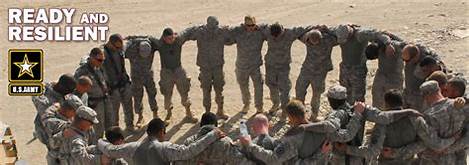
I have already written about some of the negative impacts that COVID-19 has had on the class of 2020. But, are there any positives? Sure there are! You’ve likely heard the phrase, “what doesn’t kill you makes you stronger.”
The truth is COVID-19 can kill young people. However, the percentages of death caused by the coronavirus drop significantly for young people when compared to that of the elder population. What COVID-19 is doing to the next generation is making them stronger, more resilient.
If our job is to make disciples out of the next generation and it is, then perhaps COVID-19 can serve as a catalyst to get us thinking about how we as church leaders can make resilient disciples out of the next generation!
Much has already been written about this topic. In their book Faith For Exiles, David Kinnaman and Mark Matlock define resilient disciples as “followers of Jesus who attend and engage with church at least monthly, believe the authority of the Bible, have a personal commitment to Jesus and express the desire to impact society as a result of their faith.” According to their research, only 10 percent of Christian young adults fall into this category. The authors then list five best practices for cultivating this type of resiliency.
Rather than list all five of the best practices, I will let you buy the book and read them for yourself. I personally find that all of the practices are valuable. But it is the first practice that I want to concentrate on: “Clear religious clutter to experience intimacy with Jesus and form one’s godly identity.”
Now, going to church every Sunday morning isn’t what I would call religious clutter. But, it could easily become so if you allow church attendance to become your crutch. If you think attending church one Sunday a month makes you religious and right with God, I might question how resilient your faith really is. Going to church is a good thing and it is important but it is not what ultimately makes you right with God.
When we speak of being a resilient disciple, we are really speaking of one having a resilient faith. Barna president David Kinnaman in his book You Lost Me, published in 2011, stated that 59 percent of young adults with a Christian background had dropped out of church at some point during their 20’s—many for just a time, but some for good. Today, that number has risen to 64 percent. Over time, Barna’s data has shown that “it’s easy for young adults to call themselves Christian—but it is much less common for them to find their identity in Jesus.” Repeatedly, Barna’s research proves how easy it is for one to be a habitual churchgoer instead of a resilient disciple.
For right now, Sunday’s at church have been taken away from us. But resilient disciples are still finding a way to attend church. My guess is that the “habitual churchgoer” (as defined by Barna’s research) hasn’t made much effort to attend virtual, digital, or drive-in church services. For resilient disciples, attending a virtual church service is just scratching the surface. Resilient disciples are found participating and leading in online Bible studies, online giving, and on/off-line praying!
It is this last word that makes all the difference in whether the next generation is found having a resilient faith or not. Resilient disciples experience an intimacy with Jesus that is unmatched. This intimacy begins and ends with a daily ongoing real conversation and relationship encounter with a risen and living Savior. These type of disciples hear the Lord’s voice and respond appropriately. They find their identity in who the Lord of the Scriptures say they are and act upon His Word.
This term “resilient disciples” is starting to catch on so much that making resilient disciples is starting to become a movement. After all, the church needs more than 10 percent of the next generation to possess a resilient faith. I say making and raising up resilient disciples is becoming a movement because you can find a website and more designated solely to this cause: https://www.resilientdisciples.com/
The home page of this website states, “Amid times of change, chaos, and an uncertain future, we believe the church needs to refocus on relational, scriptural, and experiential child discipleship.” The website offers youth discipleship curriculum as well. An article on the website states,
“Every modern generation, or demographic cohort, has experienced critical events that marked them profoundly. The Greatest Generation (1910-1924) lived through the Great Depression and two World Wars, experiencing extreme economic and social turmoil. Their generational psyche was shaped by an ability to know how to survive, make do and solve problems. They were resourceful survivors who could pinch a penny like crazy. And yes, they were and are great!”
The title of the article was, “Then Came COVID-19 . . . And Then Came The Greatest Generation of Disciples.” I sure hope the author of the article is right! Let’s all do our part.